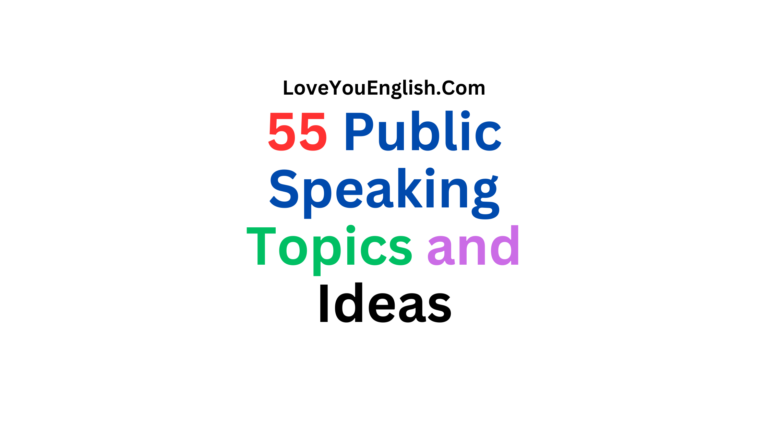Make Mistakes and Speak English Fluently
Today in the blog we’re going to talk about something that I’m sure you’re facing right now. There is this problem that I’ve observed with all the English learners.
Don’t perfect grammar
I can say this generally that people focus too much on perfecting their grammar right in the beginning and their focus on grammar is so much they want to be so good at their grammar.
And as a result, they actually lose their focus from learning how to speak fluent English to actually perfecting their grammar.
I want to say something here and this is my opinion. I’m sure after listening to me, most of you are going to agree with me.
The thing is that you feel that you have to learn proper grammar in order to speak fluent English and I want to actually disagree on this.
I want to tell you that despite not having proper command over grammar, you can still be fluent in English. I’ve come across so many people in my life who could actually place their words right after the one after the other while they speak in English.
And they were, they were, they were good with their speed, they could speak fluently, but of course they were making grammatical errors.
And I want to say something here that making a few grammatical errors here and there is not a big deal. It’s not a big deal. Probably you have made it a big deal for yourself. It’s not a big deal.
Also read:
- Remote Education Jobs Opportunities
- The Role of Technology in English Teaching
- Managing Discipline in Online ESL Lessons
- Rise of Online English Teaching
But I want to say here in short, is that “your focus on speaking fluent English should be more than your focus on speaking perfect grammar”.
First of all, you don’t have to learn grammar. Grammar is not something that can be learned. Of course, you will learn it with the help of your practice.
That will happen eventually by learning. What I want to say here is that you can’t just open a book and start mugging things up. You can’t mug them up.
You can’t mug grammar up grammar. Perfection is going to happen with time. It’s going to happen over the years.
Everyone makes mistakes
Everyone makes mistakes and not just us, even with the people who are born with this language, who are, I mean who have English as their mother tongue, they also make grammatical errors, children make errors and when they grow up, they are of course.
I mean they are so exposed to that environment that eventually they might absorb it.
That’s how it happens. Grammar is something that your mind absorbs overtime when you are exposed to a lot of English around you.
And if you are not exposed to it, there are some steps that you can actually take in order to expose yourself more to English.
When you are exposed to English for a good amount of time, your mind is so beautiful that it starts to absorb the correct and it can make out the difference between right and wrong when you continue to speak.
Grammar will happen automatically to your brain. And you will see that you are improving day by day. That happens with everyone.
My story
I was born to a very middle class, non-English speaking family and here I am.
I’m not saying I don’t make errors with my grammar, I’m sure I make them. And I do receive some comments often telling me sir, this was wrong in your speech today.
This could have been better, or this should have been there. And you know what I learned from those comments? I actually do my research.
I don’t blindly just agree to them or just learn them up. No, whenever somebody corrects me over my English through my comment section or anywhere, what I do is I always make it a point that I do my little research.
If somebody corrects you, it’s alright, just thank them. Don’t feel offended. Don’t feel bad about somebody making a correction in your speech. You should always say a thank you to them.
Alright, thank you very much for teaching me something new because if they hadn’t corrected you, probably somebody else would have laughed at you and then you would have learned your lesson.
It’s better that somebody is not laughing at you and teaching you something.
Another thing is that we need to have a top-down approach. By top-down approach. I want to say that our focus is on the top, and the top is that we want to have fluent English, right?
We want to have fluent spoken English. So, that is our top focus. And by lower levels, I mean grammar. You have structure. Structure and grammar and sentence framing and other stuff like that.
Here at the bottom, things will automatically start to fall in place when you’re practicing. OK, your focus is always supposed to be on speaking English. I was born to a Hindi speaking family.
Now, was I taught grammar in Hindi? No, I wasn’t. I wasn’t taught grammar. I learned my grammar of Hindi, and nobody taught me, even before going to school, I was already so good in Hindi. How? How was I so good at it?
I was so good at it because of course, because I made my mistakes and I learned from my mistakes, and I saw people speaking in Hindi and I absorbed it.
I learned it in the process. Some of you might not have gone to an English medium school or you would not have gone to a good school. Maybe, but that should not be a barrier.
That is something that you are telling yourself. That is something that is acting as an excuse for you and is pulling you back. Just going to a good English medium school is not enough.
Many, many students who attend an English medium school or a good school are often seen not speaking in English and they do not have good command over their grammar or the otherwise structure of English.
Why is it so? Because they lacked in their practice.
My love with English
In my case, I have been to a Hindi medium school and my exposure to English was distant. It started in class 11th. I had science subjects, and I was FORCED to learn English.
We were taught everything in Hindi even English was translated, and the focus wasn’t on speaking.
It was all about covering the syllabus it was all about writing and cramming grammar rules.
And as a result, almost everyone in my school would not speak English. It was my own urge to learn the language. It was my own urge to have command over this language.
And I understood the importance of the language. And that is why I started putting in effort into learning the language. And that is actually what worked in my favor.
I liked the language. I was fascinated by it, and I wanted to do it. See. If you have to learn guitar, and you’re taking guitar lesson, would you keep one class in January and second class in February and 3rd class in March?
No, you wouldn’t do that. When you have to learn guitar, you have to keep your classes in a manner that the gaps between the classes have to be small.
They have to be short. You can’t take two classes at a gap of 10 days or 15 days or a month. That is not how you learn something new.
Have structure
Same goes for the language learning also. What you need to do is you need to have a structure in your life. If you are actually working on learning this language, you need to have a structure.
By structure I mean you need to put in some conscious effort, some conscious efforts, and some conscious actions into learning the language. You need to have some online course going on for you.
You need to have a journal maintained. You need to have some application installed in your phone, which you visit every day to learn something new. You need to have a novel in your bag, something that you read every day.
You need to have a little bit of time of speaking every single day, and that is how you structure your learning. The biggest mistake you are making is you do not have a structure you want to learn.
You keep telling me that you want to learn. What are you doing to learn? Do you have something, some kind of a timetable for yourself? Some kind of a school for yourself somewhere? Some place where you can go and learn every day?
Also read:
- The Ultimate Guide To Online English Teaching
- Online Teaching Earning – A Guide
- How To Make Money Teaching Online
- Benefits of Teaching from Home
If you’re not doing that, you are making a blunder.
Please understand structure is important, and there are several things. Of several posts I’ve made on this concept, things that you can do to learn English, start doing those things on a regular basis.
That’s how you keep in touch with your learning process and that’s how you learn.
That’s all that I have to say. I am sure I’ve covered everything that I wanted to talk about in this blog today. Please don’t focus too much on the intricacies. It’s alright to make mistakes and in fact it is good to make mistakes.
Sometimes you even gain confidence if you can confidently make a mistake, I don’t think.
There’s anything more beautiful than that. Be confident while making a mistake. Let others correct you. It’s alright, nobody’s going to eat you alive. Just let them correct you if they want to.
Let them laugh if they want to. It’s all right. You’re learning. You’re bound to fall down sometimes here and there.
I’m sure you’re going to rock!





